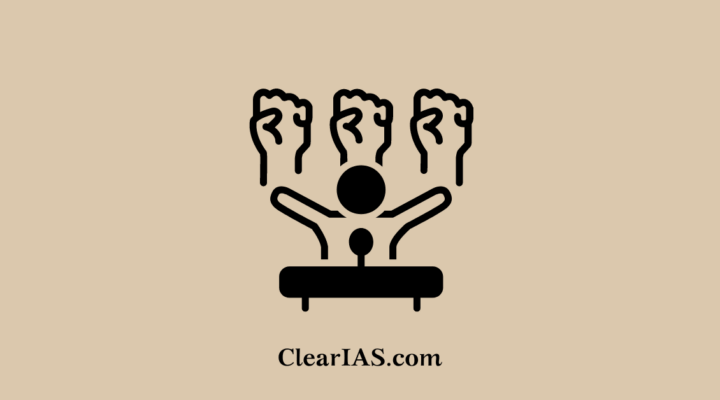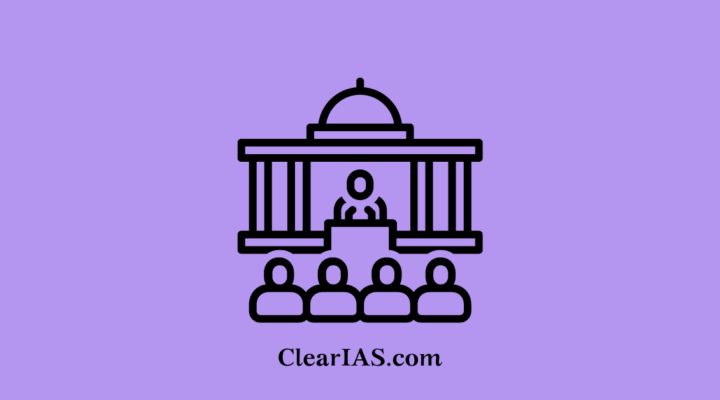We covered 'Role of Civil Services in a Democracy' in our last post. Hope the overview is now clear. Civil Servants being permanent executives, they advise political executives. They also assist the ministers to formulate and execute policies. In this post, we shall see in particular the functions … [Read more...] about Functions of an IAS Officer
Indian Polity Notes
Role of Civil Services in a Democracy
Indian state has three typical branches - Executive, Legislature and Judiciary. Executive is responsible to Legislature while Legislature is responsible to people. By Executive here we meant Political Executive - the ministers. Political executives are not permanent, and in Indian scenario, since … [Read more...] about Role of Civil Services in a Democracy
Advocate-General, Conduct of Government Business etc (Article 165-167)
PART VI of the Constitution deals with the States. Article from 152-237 deals with various provisions related to States. Part 6 covers the executive, legislature and judiciary wings of the states. Having covered articles related to Council of Ministers and related info-bits in last post, let us … [Read more...] about Advocate-General, Conduct of Government Business etc (Article 165-167)
Council of Ministers in States (Articles 163-164)
Under our free online study materials for Polity, we have been doing detailed analysis of Indian Constitution - article-wise - a unique approach to learn Indian Constitution for Prelims, Mains and Interview. We follow the same constitutional order and wordings as in the Constitution of … [Read more...] about Council of Ministers in States (Articles 163-164)
Historical Background of Indian Constitution
The historical background of the Indian Constitution can be traced to many regulations and acts passed before Indian Independence. Read further to learn the evolution of the Constitution comprehensively. Before 1947, India was divided into two main entities - British India which consisted of 11 … [Read more...] about Historical Background of Indian Constitution
Important Parliamentary Committees in Detail
Parliamentary committees in India play a crucial role in the legislative process, oversight of the executive, and examination of various issues related to governance and policy implementation. These committees are instrumental in ensuring transparency, accountability, and effective functioning of … [Read more...] about Important Parliamentary Committees in Detail
Parliamentary Committees in Lok Sabha and Rajya Sabha
What do you mean by the Parliamentary Committee? What are the types of committees in the Parliament of India? You all are familiar with Parliament as a major organ of the state dealing with lawmaking. Parliament is also the authority to check the Executive (government). Every Executive is … [Read more...] about Parliamentary Committees in Lok Sabha and Rajya Sabha
Indian Companies Act 2013 : Salient Features
The Indian Companies Act 2013 replaced the Indian Companies Act, 1956. The Companies Act 2013 makes comprehensive provisions to govern all listed and unlisted companies in the country. The Companies Act 2013 implemented many new sections and repealed the relevant corresponding sections of the … [Read more...] about Indian Companies Act 2013 : Salient Features
Governor of States (Article 152-162)
PART VI of the Constitution deals with the other half of Indian federalism, ie the States. Article from 152-237 deals with various provisions related to States. It covers the executive, legislature and judiciary wings of the states. Article 152 clarifies about the definition of state, while the next … [Read more...] about Governor of States (Article 152-162)
Comptroller and Auditor-General of India : CAG (Articles 148-151)
Chapter V under Part V of the Indian Constitution deals with the Comptroller and Auditor-General of India (CAG). CAG is responsible for auditing the accounts of the Union and State governments and public sector organizations, and for maintaining the accounts of State governments. The reports of … [Read more...] about Comptroller and Auditor-General of India : CAG (Articles 148-151)














